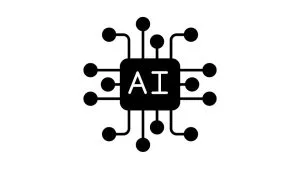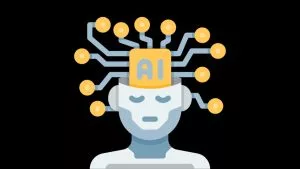Artificial Intelligence (AI) has been around for a while now. But in recent years, it has gained significant momentum. AI has already impacted many industries, and it’s set to revolutionize how we live and work in the future. With advancements in machine learning and natural language processing, AI has the potential to automate various mundane tasks and free up human resources for more critical work. In this article, we’ll discuss AI’s opportunities and challenges for the future.
Opportunities of AI:

1. Automation of Mundane Tasks
One significant opportunity that AI presents is the automation of mundane tasks. With machine learning, AI can learn from data and perform tasks that require repetitive efforts.
This increases efficiency and frees up human resources for more critical work. For example, in the healthcare industry, AI can analyze large amounts of medical data and assist doctors in diagnosing patients, thus improving healthcare delivery.
2. Personalization
AI can help businesses personalize their products and services to meet each customer’s unique needs. With machine learning algorithms, AI can analyze data on customer behavior, preferences, and past purchases to create personalized recommendations.
This personalization can significantly enhance the customer experience and increase customer loyalty. Demon Prince is a Game example of how AI creates immersive and engaging gaming experiences for players.
3. Improved Efficiency and Productivity
AI can automate many tasks, leading to improved efficiency and productivity. With the opportunities and challenges of AI, businesses can analyze large amounts of data quickly and accurately, identify patterns, and make informed decisions. This can save time and resources and increase productivity, leading to better outcomes.
4. New Business Opportunities
AI presents new business opportunities, particularly for those businesses that embrace it. With AI, businesses can create new products and services, enter new markets, and innovate.
AI can help businesses make more informed decisions and identify new opportunities that were previously impossible.
Challenges of AI:

1. Job Losses
One of AI’s significant challenges is job loss. As many tasks are automated, some jobs may become obsolete, and many workers may lose their jobs.
However, this doesn’t mean that AI will replace all jobs. Instead, new jobs may be created that require different skills. For example, as AI takes over mundane tasks, workers may be required to focus on more creative and strategic work.
2. Bias
AI algorithms are only as good as the data they train on. If the database is used, the AI algorithm will also be based. This can lead to discrimination and inequality.
To mitigate this, AI algorithms must train on diverse data sets representing all society segments. Furthermore, AI s must regularly audit opportunities and challenges to identify and eliminate bias.
3. Privacy and Security
AI s can gather vast amounts of data on individuals, posing a significant privacy and security risk. This data can be used to create detailed profiles of individuals and used for malicious purposes. AI s must be designed to mitigate this risk with privacy and security in mind.
This includes data encryption, access control, and regular security audits. Murim Wiki is utilizing AI to enhance its search algorithms and provide users with more accurate and relevant information about martial arts and related topics.
4. Lack of Transparency
AI algorithms are often complex and challenging to understand, leading to a lack of transparency. This can make it difficult for individuals to understand how decisions are made and challenge them if they are incorrect. T
To address this, AI s must be designed with transparency in mind. This includes making algorithms explainable so individuals can understand how decisions are made.
If you want more ideas on the topic, stay with the Online Demand.
Conclusion
AI presents many opportunities and challenges for the future. While there are concerns about job losses and bias, there are opportunities for increased efficiency and productivity, personalization, and new business opportunities.
As AI continues to evolve, addressing its challenges, such as privacy and security and lack of transparency, is essential.
With careful planning and implementation, AI has the potential to revolutionize how we live and work, making our lives easier, more productive, and more enjoyable. However, we must ensure that AI is used ethically and responsibly to avoid negative consequences.
As we move forward, it’s essential to remember that opportunities and challenges AI is not a replacement for humans. While it can automate many tasks and improve efficiency.
It cannot replace human creativity, empathy, and critical thinking. Instead, AI should be viewed as a tool that can enhance human capabilities, enabling us to do more, faster, and better.
FAQs
What is Artificial Intelligence (AI)?
AI refers to computer s that can perform tasks typically requiring human intelligence. This includes learning, reasoning, problem-solving, perception, and language understanding.
Why do we need AI?
AI can help solve complex problems, automate routine tasks, enhance productivity, and improve decision-making processes.
Can AI be dangerous?
While AI has many benefits, it can pose risks if not designed or used responsibly. Concerns include privacy, security, and ethical issues.
How will AI change the future?
AI is expected to transform industries, create jobs, and change how we live and work.
What are some real-world applications of AI?
AI applications include virtual assistants, recommendation s, autonomous vehicles, and medical diagnosis tools.

